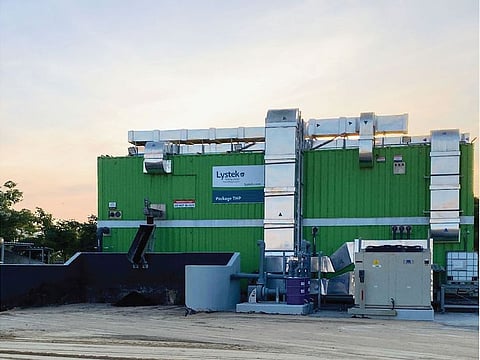UAE: New organic fertiliser production unit in Sharjah could yield better crops
Facility's nutrient recovery system used for first time outside USA and Canada

Sharjah: Sharjah City Municipality (SCM) has launched an Organic Fertiliser Production Unit as an innovative project that enhances the municipality’s role in achieving sustainability.
The unit produces high-quality organic fertilisers used in agricultural projects. It is also considered as one of the innovative solutions in managing biosolids and nutrients.
The municipality said it has applied the nutrient recovery system for the first time outside USA and Canada.
Reem Abdullah Al Roussi, director of the Information Technology Department and Head of the Innovation Team in Sharjah Municipality, said that the SCM participates annually in the UAE Innovation Month (Febraury) to introduce its latest innovations, achievements, and provide services easily.
Al Roussi explained that the SCM launched the organic fertiliser production unit to produce high-quality fertilisers at its work site, and curb waste disposal in landfills. The unit provides high operational capacity and predictable operational costs. It contains water withdrawal equipment and other ancillary systems needed to produce high-quality Class A fertiliser.
Large capacity
It produces five tonnes per day as a first stage, and productivity will be raised to 30 tonnes. Al Roussi stated that the project serves 1,685,000 people and the volume of materials that are processed is 1,750 dry tonnes.
The product from this unit is a pathogen-free liquid fertiliser that meets US Environmental Protection Agency (EPA) standards for Class A biosolids and Canadian Food Inspection Agency( CFIA ) standards for regulated fertiliser, and third-party studies have shown that the product from this unit can completely replace commercial fertilisers and provide better crops.
The product also eliminates pathogens (Ecoli and Salmonella) present in biosolids in a process that takes less than one hour, while conventional fertilisation takes weeks or months to achieve similar results. In addition to the nitrogen and phosphorus naturally present in biosolids, the unit enhances the product’s content of other key agriculturally necessary nutrients such as potassium, and provides a good fertilizer capable of competing with commercial fertilizers.



